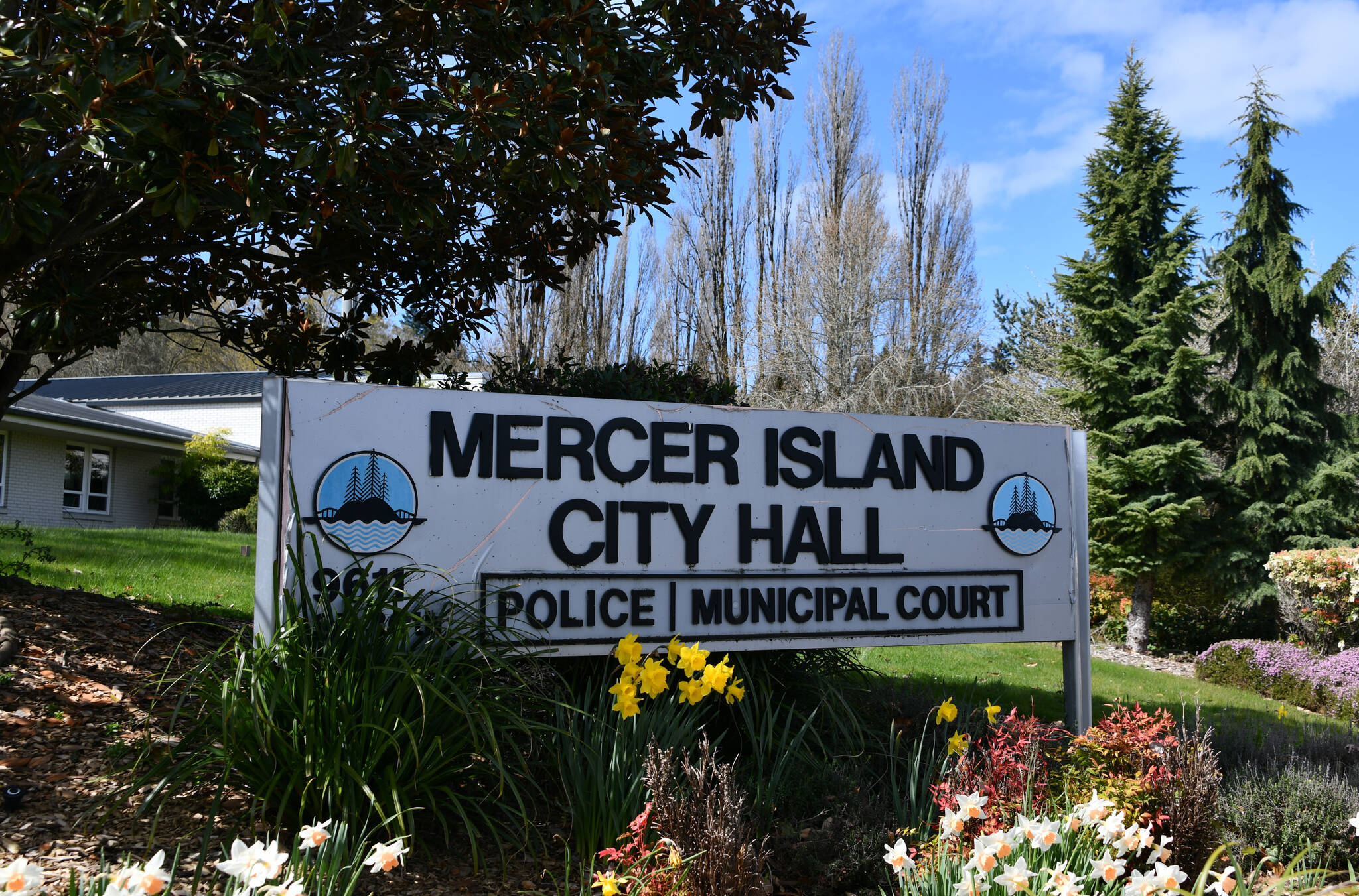The Mercer Island City Council has approved 39 “substantive” amendments to the proposed city comprehensive plan, along with “non-substantive” amendments and recommended amendments by the Washington State Department of Commerce.
For more than four hours on Sept. 3, the council reviewed whether to approve the proposed changes considered “substantive,” amendment by amendment, for the draft of the city’s comprehensive plan.
Mercer Island Community Planning and Development Director Jeff Thomas described the comprehensive plan as a 20-year horizon plan, which is required to be updated every decade. The plan outlines how the city will deal with many issues such as land use, transportation, capital facilities, utilities, economic development, parks and open space and housing.
Since their last meeting on July 16, the city council had a three-week rolling period to submit amendments to the comprehensive plan. After this period, Thomas said the staff reconciled and prepared a city council amendment matrix, an agency/city matrix and an updated question and answer matrix, which were issued to the city council on Aug. 21.
At the Sept. 3 meeting, the council approved the amendments deemed as “non-substantive,” as well as the recommended amendments from the Washington State Department of Commerce, each with a single motion. The “substantive” amendments proposed by council members were voted on one at a time. A total of 39 of these amendments passed in a motion at the end of the night.
The council also approved ad hoc meetings for Sept. 5 and Sept. 6 to work with staff to form recommendations on the proposed economic development amendments. Mayor Salim Nice, Councilmember Ted Weinberg and Councilmember Craig Reynolds volunteered to work at these meetings. They will present their recommendation at the Sept. 17 regular city council meeting.
Once the amendment phase is complete, the staff will make a new draft of the city comprehensive plan, which will be made available for public review and comment for a period of no less than 30 calendar days prior to the city council completing the first reading of an adopting ordinance scheduled for Nov. 5.
One concern brought up by Weinberg early in the meeting was the conflict between preservation of neighborhood character in the proposed comprehensive plan and changes to state law from House Bill 1110, which will require many cities in Washington to allow a broader range of housing types in areas that have allowed predominantly detached homes, particularly around major transit stops.
“There’s some neighborhoods where we are going to have increases in density, increases in scale. There’s a neighborhood not very far from here that’s all single-family houses and it’s going to have to allow quadplexes with a quarter mile of the train station. That’s clearly a change in the density of the neighborhood,” Weinberg said. “If we have a policy saying that we are preserving neighborhood character in all residential zones, is that in conflict with what we have to do to be in compliance with state law?”
Thomas said they intentionally steered clear of describing neighborhood character.
“That is something that could go down a long and windy road. Many other jurisdictions have struggled with that over the course of time,” Thomas said.
Thomas said they are trying to put the phrase “neighborhood character” into a box by referring to the form, bulk, scale and intensity of a neighborhood.
“We believe threading the needle there gets us there a little bit to where we need to be without having to go back and do major reconstruction on anything,” Thomas said.
Nice said House Bill 1110 does not implement until June 2025.
“Your point, while it might be true next year, is not going to be true this year,” Nice said. “We’re not implementing House Bill 1110 in this draft. There is no middle housing and there is no need to be consistent with anything.”
Reynolds said he also had the same concern as Weinberg.
“I was concerned that neighborhood character was not defined and that the definition there now does seem inconsistent with the coming law,” Reynolds said.
City Manager Jessi Bon asked Thomas to clarify what would need to happen when there is a legislative change that is in conflict with the comprehensive plan and how they would amend the plan. Thomas said they can make the necessary changes when it is required to implement legislation such as House Bill 1110, at the annual comprehensive plan amendment process, or at the five-year check-in with the county.
The next regular city council meeting is scheduled for Sept. 17 at 5 p.m.


